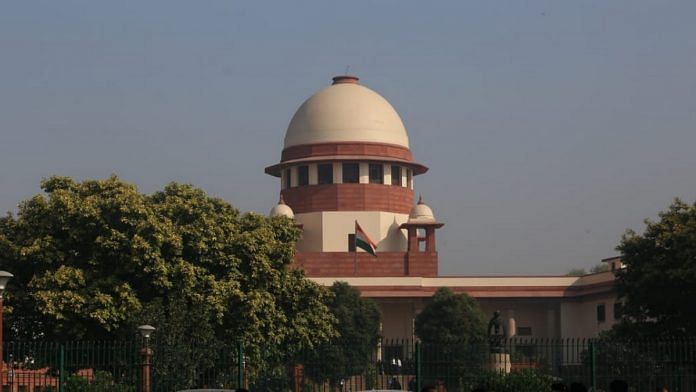New Delhi: The Narendra Modi government has moved an application in the Supreme Court, urging it to have another look at the guidelines it passed in 2014 to safeguard the interests of death row convicts.
On 14 January 2014, the Supreme Court, in the Shatrughan Chauhan case, had stipulated that a convict must be given 14 days between being informed that his mercy plea has been rejected and his execution. The court had stated that this period of 14 days would give a convict time to make “peace with God” and accept his fate.
The Ministry of Home Affairs (MHA) has informed the top court through this application that convicts of heinous offences who are given a death sentence take refuge under this precedent and Article 21, and thereby take the “judicial process for a ride”. The government wants to make the guidelines victim-centric, rather than convict-centric as they are now.
The ministry has requested the court to alter these guidelines in a way that the convicts be bound to file a curative petition within a specific time period after the review petition is rejected.
Also read: Why it’s wrong to question ‘delay’ in hanging of convicts in 2012 Delhi gangrape-murder case
Cases with multiple convicts
The government has stated that if there are multiple convicts of a crime in which the death sentence has been awarded, the court should mandate the issuance of death warrant within seven days of the rejection of the mercy plea, and the execution should take place within seven days after the warrant is passed.
This process, the government has urged, should be irrespective of any other legal proceedings opted for by the co-convicts.
The Modi government has justified its request to speed up the process of hanging by stating that the delay in execution has a dehumanising effect on the convict.
It has argued that when there are multiple convicts of the same crime awarded death penalty, the delay tactic is visible when one convict files for review, others are advised not to opt for the same legal remedy, and wait until the first one exhausts his legal options.
“This is for the simple reason that though many jail manuals or prison rules do not prohibit the execution of death sentences of co-convicts, one by one, there may be some states where the execution of death sentence with regard to all the co-convicts may be simultaneous,” reads the application.
The 16 December gang rape and murder case
The application is significant in the current context of the delay in execution of the four convicts of the 16 December Delhi gang-rape and murder case.
The review petitions of the four convicts were filed in 2018 and 2019. Three of the petitions were rejected in 2018; the fourth in 2019. Thereafter, only two convicts filed curative petitions, while the other two still haven’t.
Only one of the convicts, Mukesh, filed a mercy plea, a mere eight days before his date of execution, 22 January. And thanks to the Supreme Court’s 2014 Shatrughan Chauhan verdict, the trial court altered its order of execution and postponed it to 1 February. However, the other three convicts are yet to file for mercy. So, if one of the convicts chooses to file for mercy on 31 January, then the convicts’ hanging won’t be possible.
However, if the Supreme Court entertains the central government’s application in the next few days and alters the directions, it would be difficult for the four convicts to buy time again.
Also read: How 16 December gang-rape convicts are using the law to avoid execution



